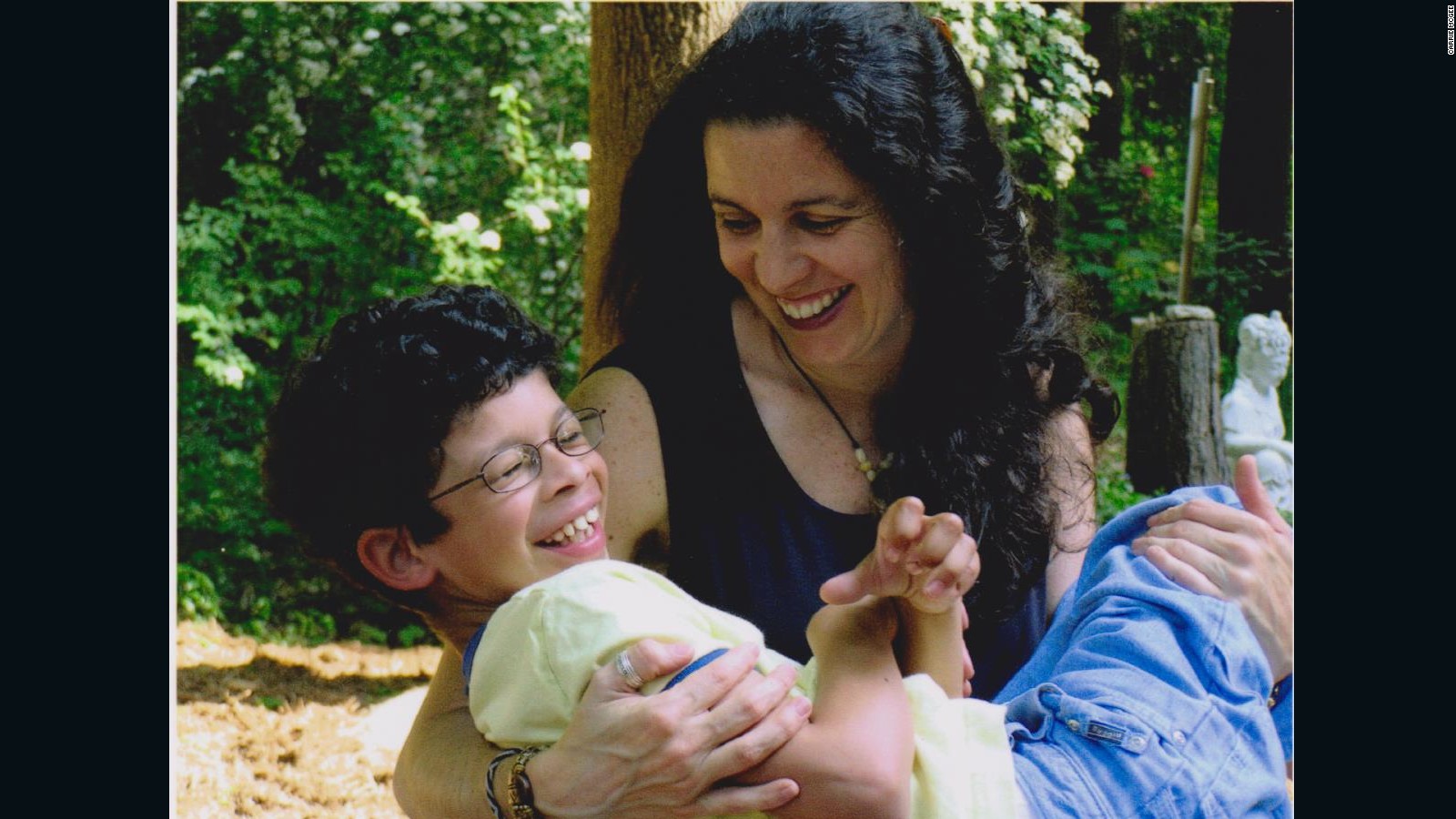*******************************************
Carrie McGee is a mother of three. She graduated from Cornell University with a bachelor's degree in psychology and master's in health services administration. She left her career as a hospital executive in 1996 when she was told her firstborn, Alex, had Williams syndrome. Eight years later, Carrie founded Whole Children with other parents. The nonprofit provides support and programs for children with disabilities. The opinions in this article are solely based on the author.
Hadley, Massachusetts (CNN)When
my son was born, I picked the name Alexander because the baby names
book said it meant "Leader of Men," and I was sure he was destined for
greatness. Here's how I pictured it: He would be very smart, win
awards, go to a prestigious university and maybe even be famous.
At
5 months old, he still cried constantly, couldn't eat or sleep and
wasn't really developing. And a heart condition was detected. His
pediatrician suggested we have a geneticist look at him. It might be
Williams syndrome, he said.
I didn't
know enough to be frightened, until I went to the hospital library where
I worked and looked up the definition. Of the 25 things that could
accompany Williams syndrome, seeing the words "mental retardation"
shattered me the most.
I pictured
someone on the short school bus, rocking back and forth in the seat,
watching the world through glass but not being allowed to be part of it.
Nope. That would not be our fate. We would beat Williams syndrome, just the two of us if we had to.
I
quit my job, took Alex to therapy twice a day. His older stepbrother,
Kush, and I worked with him at home when he wasn't in therapy.

Carrie McGee and her son, Alex. When Alex was diagnosed with Williams syndrome, she quit her job to care for him.
As
the years went by, Alex made progress, but at what cost? I became
isolated and depressed. The other parents in our neighborhood made
friends while their kids played together on the playground, but Alex
couldn't walk or climb unattended. I wasn't about to let him sit in the
wood chips by himself. We had work to do.
With
each evaluation, more deficits were revealed. Every time, I asked what
I could do to help my son. The professionals patted me on the head and
told me to accept his limitations.
I
dreamed of a place for Alex and I where there was laughter and
happiness, where other parents who shared similar experiences could come
together. I didn't want to choose between having friends and helping my
son. I needed both.
By the time Alex
was 4, I was a single parent. With my three sons, I moved from
Philadelphia to Amherst, Massachusetts, where the schools included kids
with special needs in their regular classrooms.
One by one, I met parents who were like me. One father would become my future husband.
We
noticed that even though our kids were technically included in school,
it wasn't true inclusion. They were invited in, but they didn't have the
skills to participate. They were often standing on the sidelines
watching because they couldn't keep up or understand the rules.
I
shared my dream with my friends, and together we embarked on a journey
to create a welcoming place where our kids would be understood and
celebrated. In 2004, we opened Whole Children,
a nonprofit where kids, teens and adults with disabilities can learn
valuable skills to help them fully engage in the world around them.
Instead of assuming every individual who walks through the door can
follow complex directions, we support them as they are and teach them
skills they need to be meaningfully included in their schools and
communities.
The first year, we ran
eight classes and served 26 families. Ten years later, we have around 75
classes a year, and we have grown to a community of 800 families. We
laugh -- a lot. Our children have taught us not to be afraid of
mistakes, so we've become fearless in our willingness to try.
We
frequently fail, which is the secret of our success. We understand, and
are helping our communities understand, how much these unique and
incredible children will grow up and enrich our community.
It does not weaken us to make the effort to understand and include those who are different. It strengthens all of us.
Alex
is now 18. He does ride a smaller bus to school, and he does rock. We
didn't beat Williams syndrome because he still has it, but at some
point, that goal just became irrelevant.
Alex
is Alex. He is an accomplished musician who aspires to be a DJ. He is
in his high school musical, has had starring roles in Whole Children's
theater productions (everyone who wants a starring role gets one) and
studies voice through a program at the University of Massachusetts.
He
recently gave a talk to a group of delegates from Azerbaijan who came
to the United States to learn ways to improve their educational services
for people with disabilities. He made such an impression on them that
when I traveled to Azerbaijan with a group of professionals to support
their work, a delegate said, "Alex is known all over Azerbaijan."
So in a way, he did become famous.
*****************************************
No comments:
Post a Comment